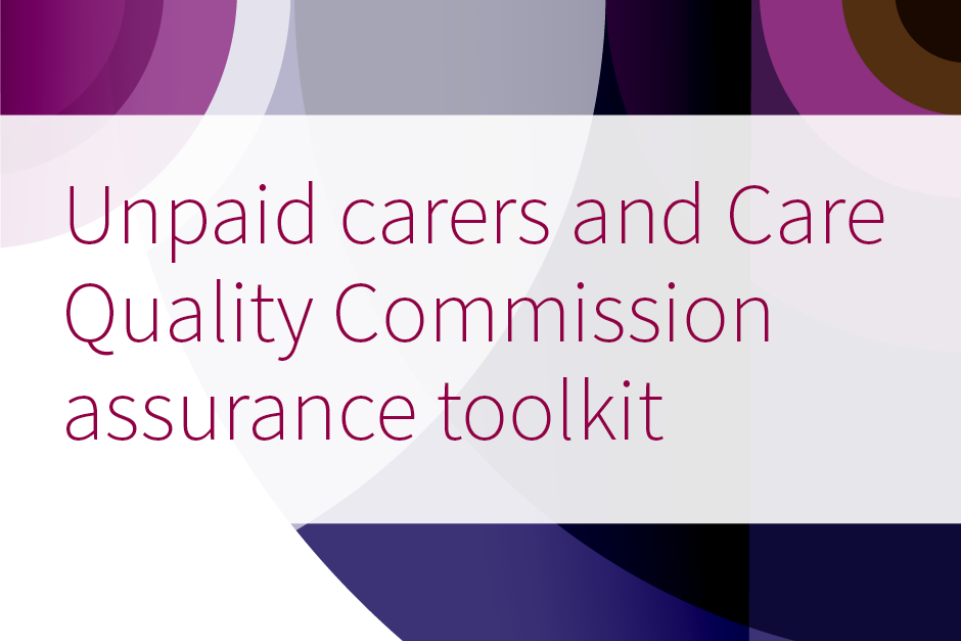This quick checklist has been developed by the ADASS Carers Group, councils, Carers Trust, Carers UK, NICE, and Partners in Care and Health.
You can find more detailed guidance at Unpaid carers and Care Quality Commission assurance.
- Make sure that all public facing plans, strategies, policies, strategic needs assessments and commissioning intentions relevant to unpaid carers are up to date and easy to find.
- Ensure there is working familiarity with Care Act 2014 statutory duties as they relate to unpaid carers, including eligibility, advice, information, advocacy, assessment (including being separately assessed from the person they care for), personal budgets, direct payments, and support planning.
- Marshal all the data on unpaid carers available to you in one place, both quantitative and qualitative, and use this to shape your narrative for the Care Quality Commission (CQC), paying particular attention to likely areas of concern for CQC, for example, reducing levels of satisfaction with social care on offer, reducing quality of life, and long wait times for assessment and services/support.
- Ensure that you can disaggregate data on wait times for assessments and support for unpaid carers, and can detail your plans for managing these and mitigating any risks, and can evidence that where joint assessment is carried out, a choice was offered, and equal weight was given to the needs of the carer alongside the person they support
- Ensure that you can demonstrate an inclusive approach to unpaid carer support, which offers diversity and choice, direct payments, tailored support for young carers and parent-carers, and that this diversity and choice is reflected in any carer’s assessments you include in the cases which will be ‘tracked’ by CQC.
- Ensure local carers organisations, and unpaid carers, are prepared for participation in discussions with CQC about their experience (including case tracking) and agree which local carers organisations CQC may wish to speak to, as well as how you will ensure views and experiences independent of the council can be shared, including from carers not known to the local system, or who are least likely to identify as a carer, or take up information, advice and support.
- Ensure you can evidence compliance with the duty to undertake young carer transition assessments, and support for parent-carers, and have developed appropriate local carer support offers for these groups.
- Ensure you can evidence how quality standards e.g. NICE guidelines and quality standards on Supporting adult carers, and other good practice resources, have been used to inform your approach to the provision and improvement of support for unpaid carers.
- Ensure your senior leadership and elected members in councils are sighted on the CQC assurance framework and are aware that this includes support for unpaid carers
- Be ready to show how you’ve fulfilled your duty to co-operate with the NHS in relation to unpaid carer support and that your NHS partners are briefed about the assurance process and their role in this.


